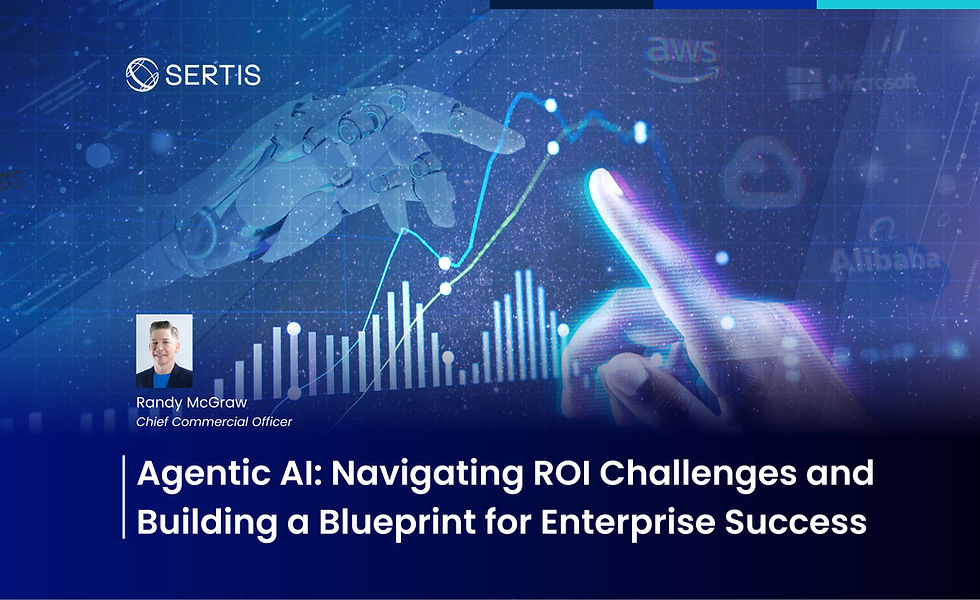AI is Reshaping The Software Development Lifecycle
- Kevin Baumgarten

- Apr 2
- 3 min read

Rapid advancements in generative AI are fundamentally changing how software is developed. Limited to code completion not too long ago, AI tools have evolved to automate entire aspects of the software development lifecycle (SDLC). From generating code from scratch to optimizing deployment pipelines, organizations are integrating AI to enhance productivity, reduce development time, and improve software quality.
While AI-driven development promises efficiency gains, it is not a replacement for human expertise. The collaboration between AI and human engineers is crucial in shaping software that is not only functional, but also secure, maintainable and aligned with business needs.
AI-assisted code generation
AI tools are no longer just autocomplete assistants; they are actively participating in software engineering tasks. For example, AI-powered development tools can:
Automate Bug Fixes: AI-driven solutions like DeepCode or CodeQL analyze codebases to identify and resolve vulnerabilities
Refactoring Code: Tools like Qodo and Refact optimize code structure, improving readability and maintainability while avoiding changes to functionality
Generate documentation: AI models can generate comprehensive documentation, extracting key insights from codebases to create meaningful descriptions
Assist in Architecture Decisions: AI can recommend software design patterns, suggest microservices architecture, and even refactor monolithic applications into more modular structures
These advancements enable developers to focus more on problem-solving and high-level design, while reducing time spent on repetitive coding tasks.

AI adoption in DevOps practices
AI is also playing a crucial role in modern DevOps practices, for example by automating critical tasks and enhancing operational efficiency:
Code Review Automation: AI-based static code analysis tools help detect security vulnerabilities and enforce adherence to best-practices.
Continuous Deployment: AI-powered CI/CD pipelines dynamically optimize build and deployment processes, increasing efficiency and speed
Improved Resource Management: Through optimization of cloud infrastructure and automated resource allocation, efficiency improvements in resource allocation can be achieved through the help of AI tools
Enhanced Security: AI-assisted threat detection and response can help in identifying potential vulnerabilities before they can be exploited.
Adopting AI in DevOps practices can help organizations maintain high-quality software while accelerating release cycles and reducing operational overhead
Challenges and Considerations with AI-adoption in Software Development
Despite its many advantages, AI-generated code also comes with some challenges that organizations must address:
Performance issues: AI-generated code has a tendency to be suboptimal in terms of efficiency, requiring further optimizations to meet performance standards
Security risks: While AI can help in detecting security flaws, it is also prone to introduce vulnerabilities itself, such as insecure authentication flows or improper data handling practices
Maintainability Concerns: Relying on AI-generated code without understanding its underlying logic can lead to long-term technical debt and debugging difficulties. Developers using AI-assisted coding may struggle to understand or debug generated code, making it harder to maintain over time
Addressing these limitations requires a balanced approach, combining AI capabilities with human expertise to ensure reliable, secure and maintainable software development.

What’s next?
Advancements in this space are rapid and the landscape and capabilities of AI-tools are evolving at a high speed. AI is bound to reshape the SDLC and introduce new ways of working for developers, but they also introduce new challenges related to security, performance and maintainability. Organizations adopting AI in software development must strike a balance between leveraging AI’s strengths and maintaining human oversight, to ensure robust, future-proof and reliable applications. As AI continues to evolve, its role in software engineering will expand, driving innovation, while requiring careful management of risks. It’s still as important as ever for organizations to have a trusted expert by their side to guide them through their path of AI adoption.


